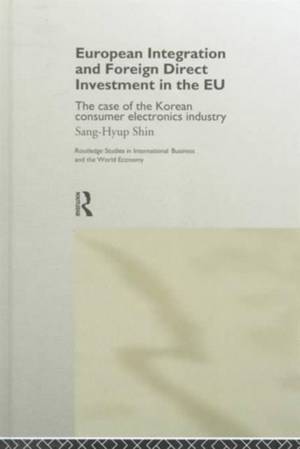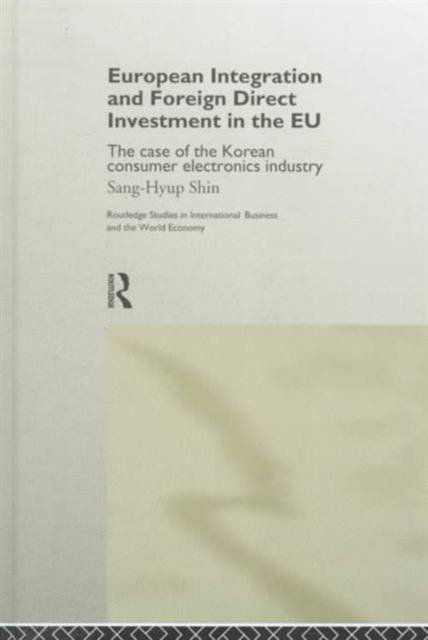
- Afhalen na 1 uur in een winkel met voorraad
- Gratis thuislevering in België vanaf € 30
- Ruim aanbod met 7 miljoen producten
- Afhalen na 1 uur in een winkel met voorraad
- Gratis thuislevering in België vanaf € 30
- Ruim aanbod met 7 miljoen producten
Zoeken
European Integration and Foreign Direct Investment in the EU
The Case of the Korean Consumer Electronics Industry
Shin Sang-Hyup
€ 366,45
+ 732 punten
Omschrijving
This book addresses the fundamental question why and under which conditions Korean firms increased their investment so heavily in the EU after 1986 and why they and not the Korean government took the initiative in the decision-making process. The author contends that the main reason for the firm's departure from government policy is the belief of the Korean government that national competitiveness, which largely affects the country's standard of living, is determined by the success of local firms in global competition. The author substantiates his argument by supplying comprehensive surveys of twenty-six Korean consumer electronics firms and concomitant interviews with senior managers in nine of these. The empirical material suggests that Korean consumer electronics firms were principally motivated by their need to seek market security through a 'globalization' strategy.
Specificaties
Betrokkenen
- Auteur(s):
- Uitgeverij:
Inhoud
- Aantal bladzijden:
- 256
- Taal:
- Engels
- Reeks:
Eigenschappen
- Productcode (EAN):
- 9780415163033
- Verschijningsdatum:
- 13/08/1998
- Uitvoering:
- Hardcover
- Formaat:
- Genaaid
- Afmetingen:
- 156 mm x 234 mm
- Gewicht:
- 539 g

Alleen bij Standaard Boekhandel
+ 732 punten op je klantenkaart van Standaard Boekhandel
Beoordelingen
We publiceren alleen reviews die voldoen aan de voorwaarden voor reviews. Bekijk onze voorwaarden voor reviews.








